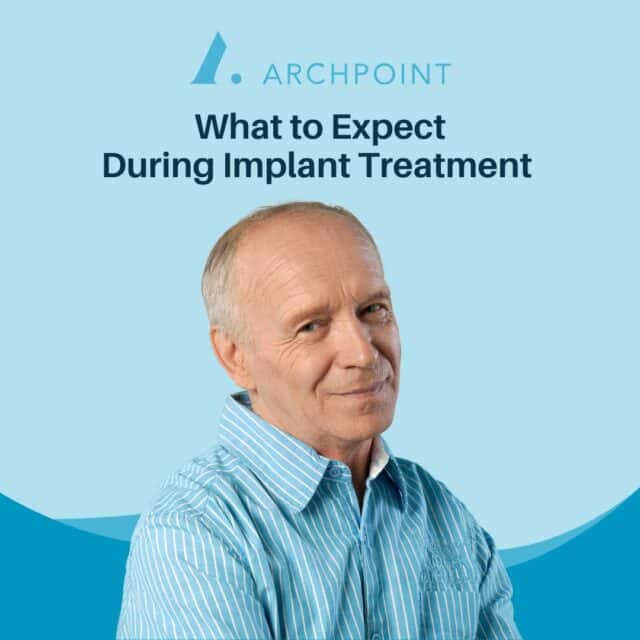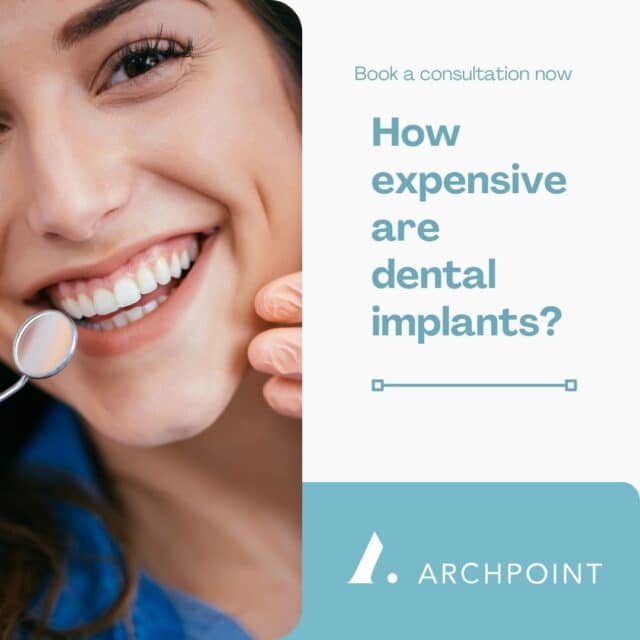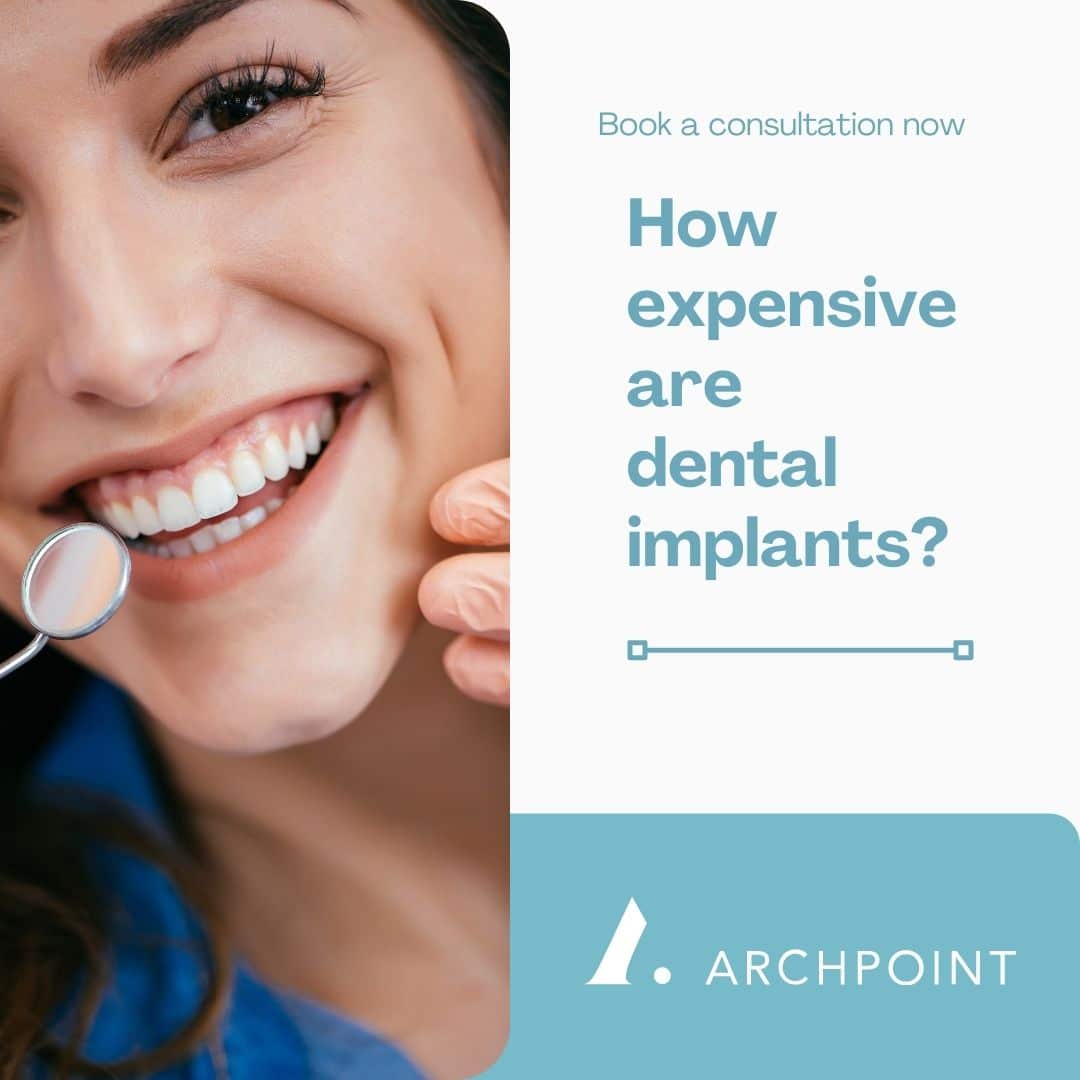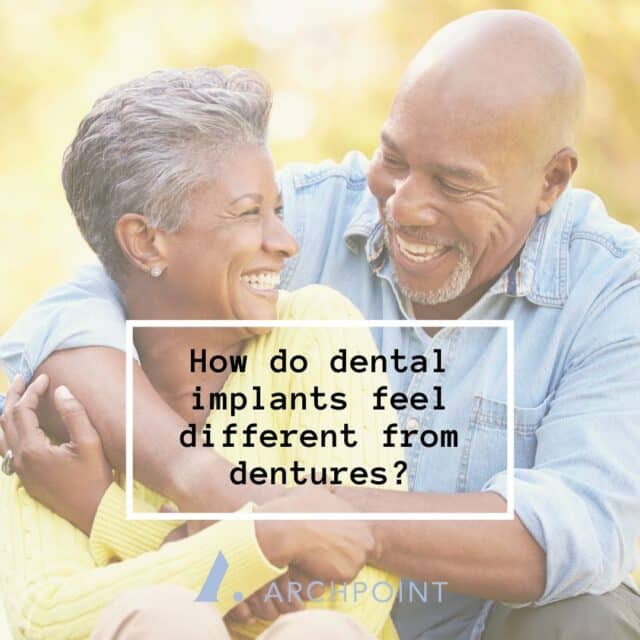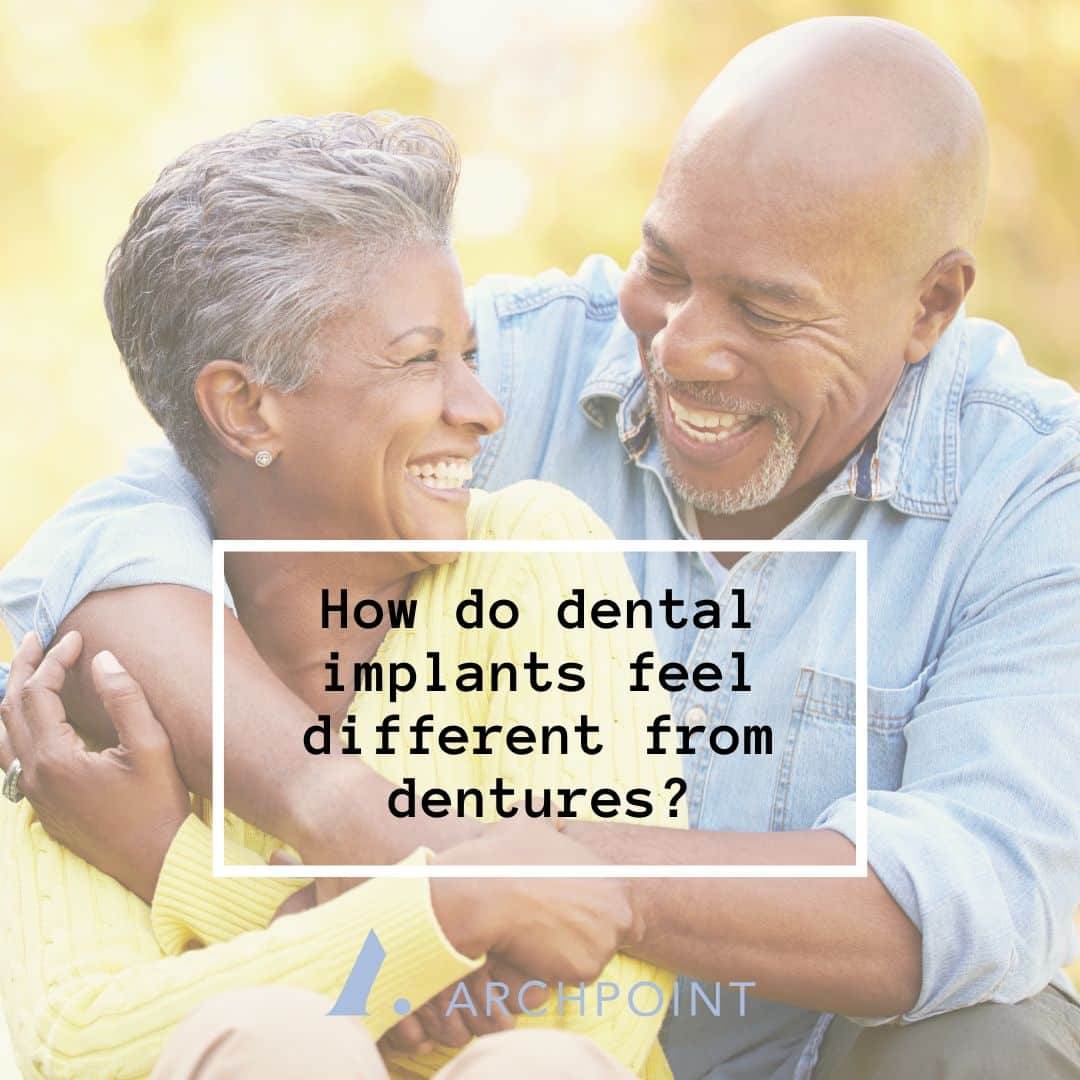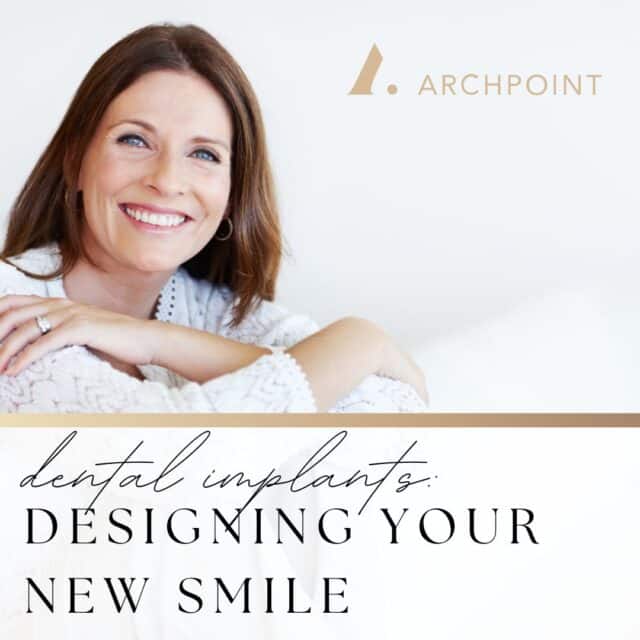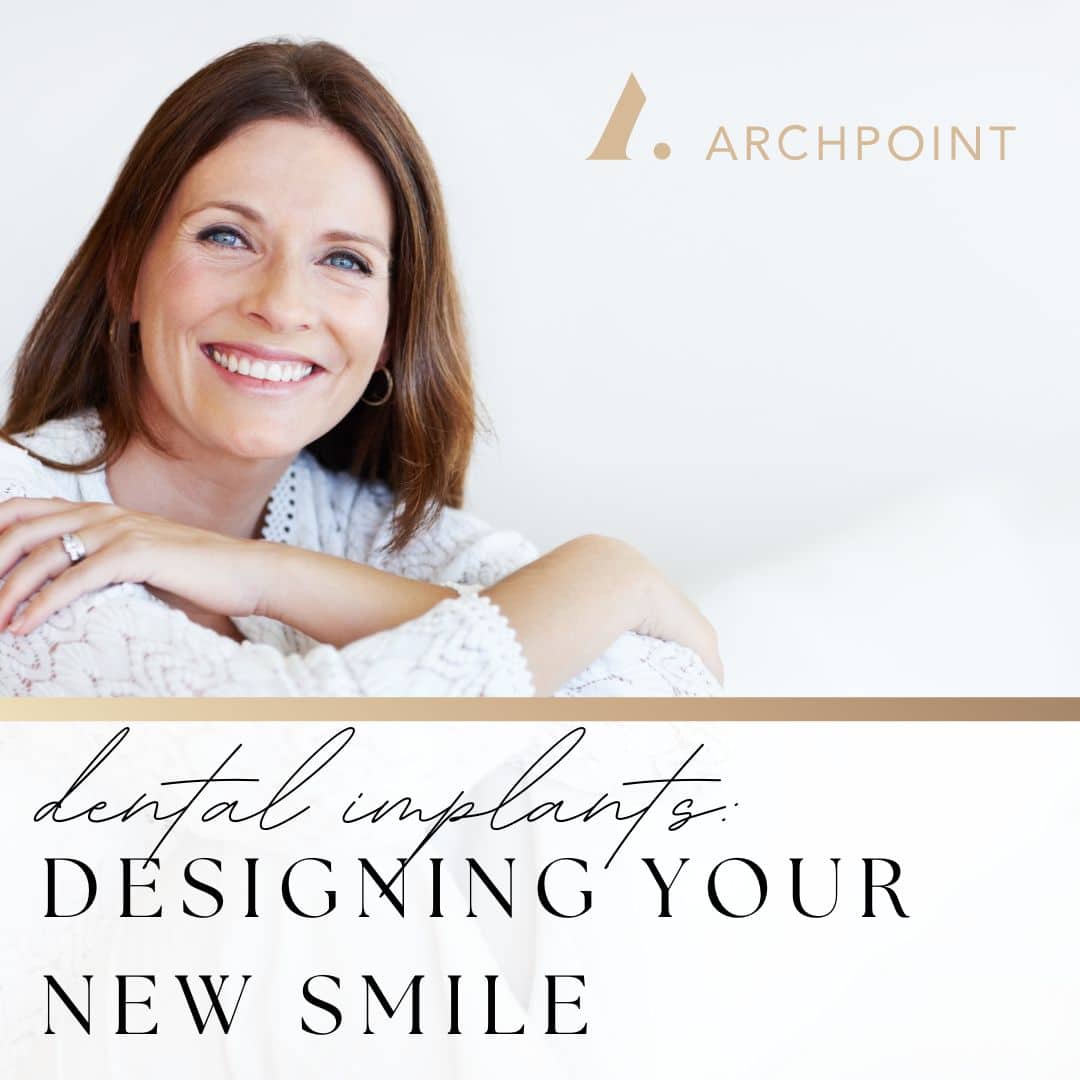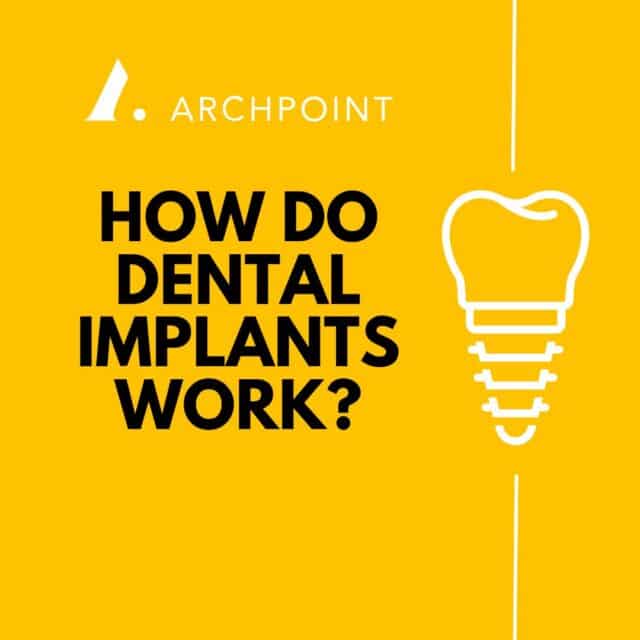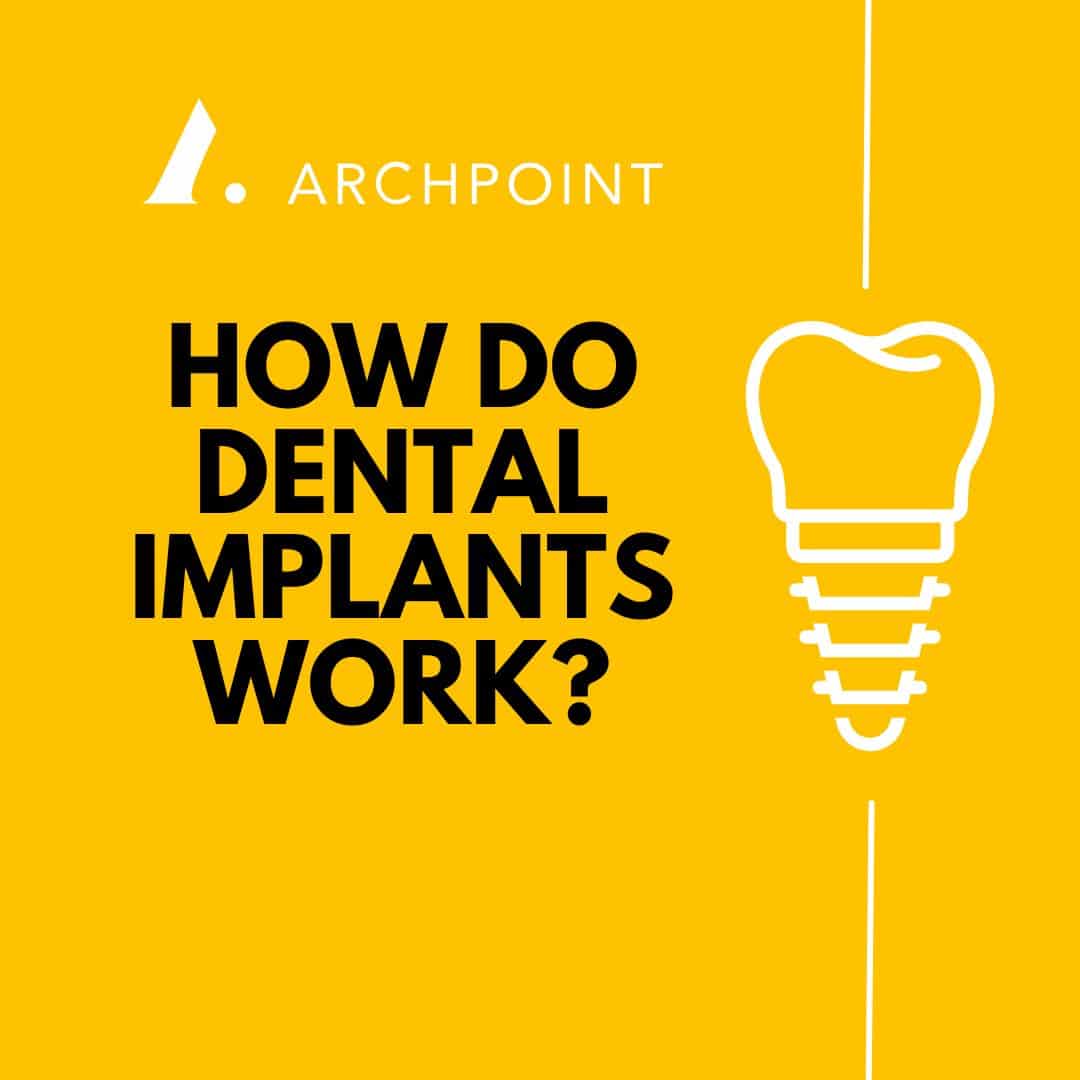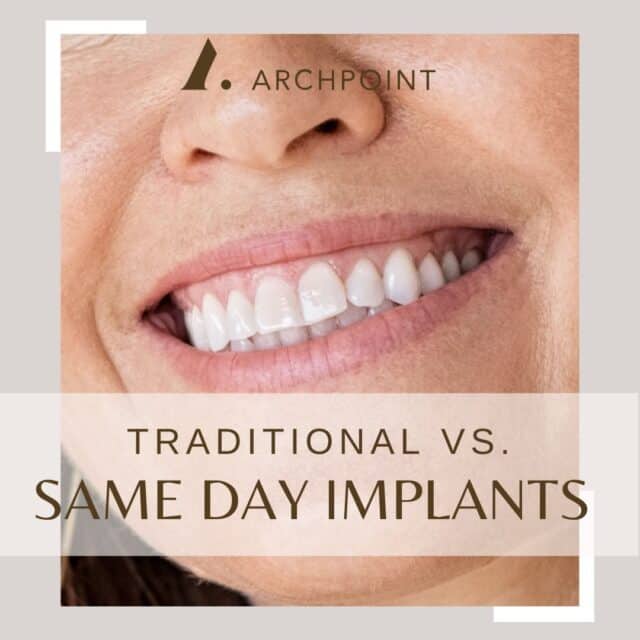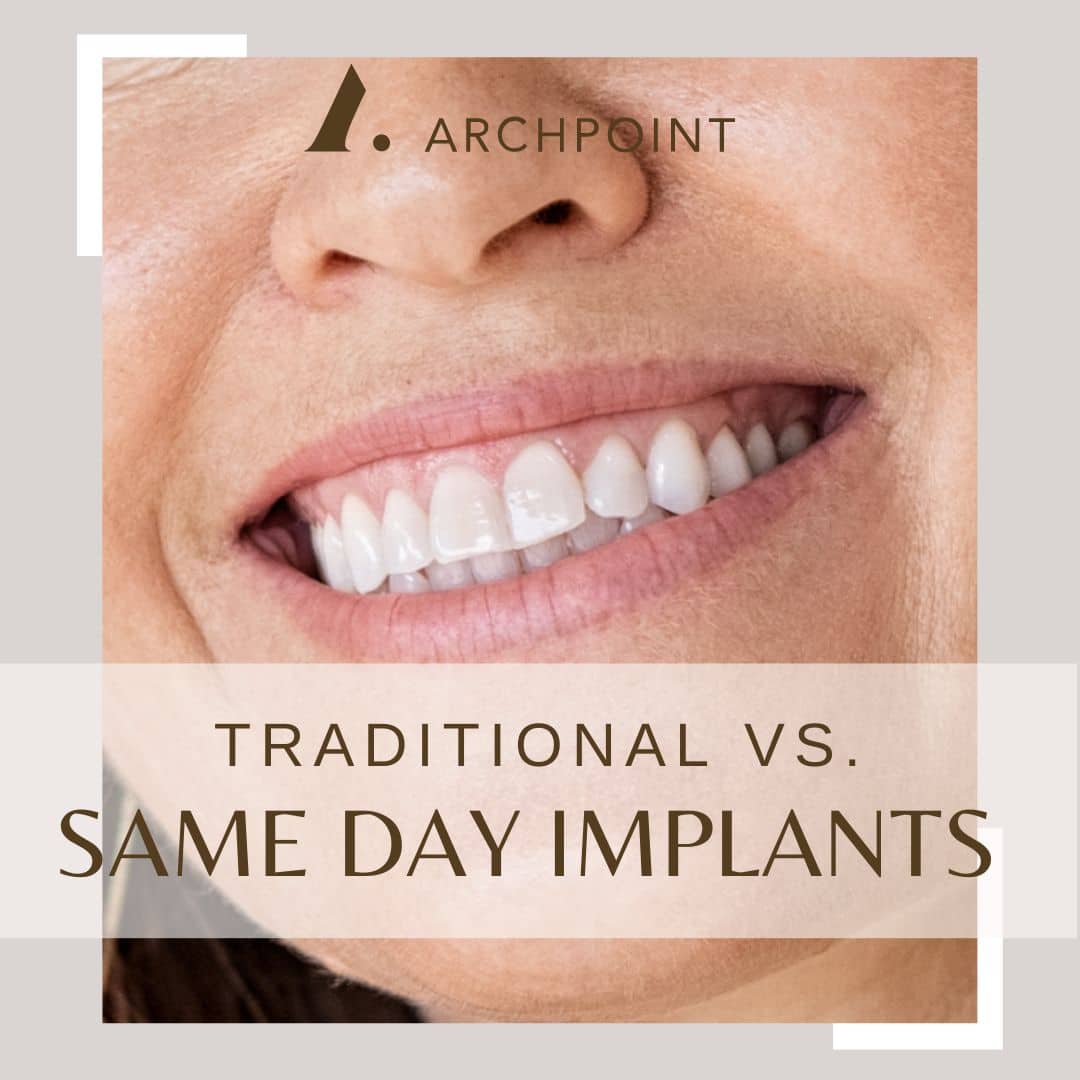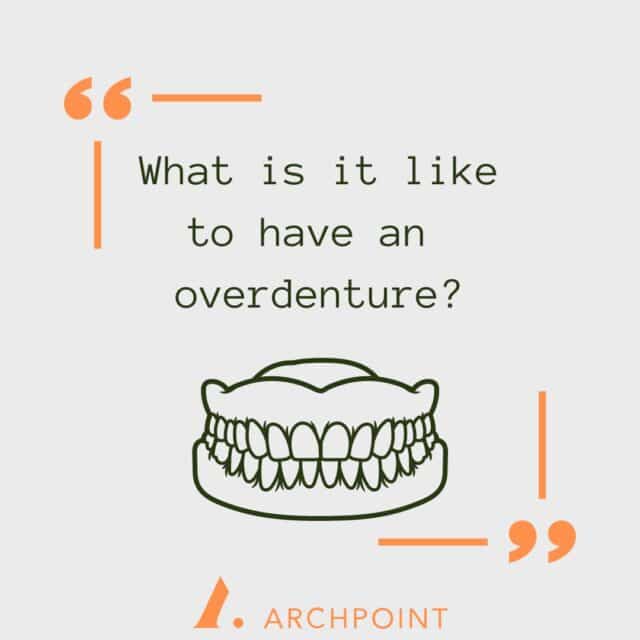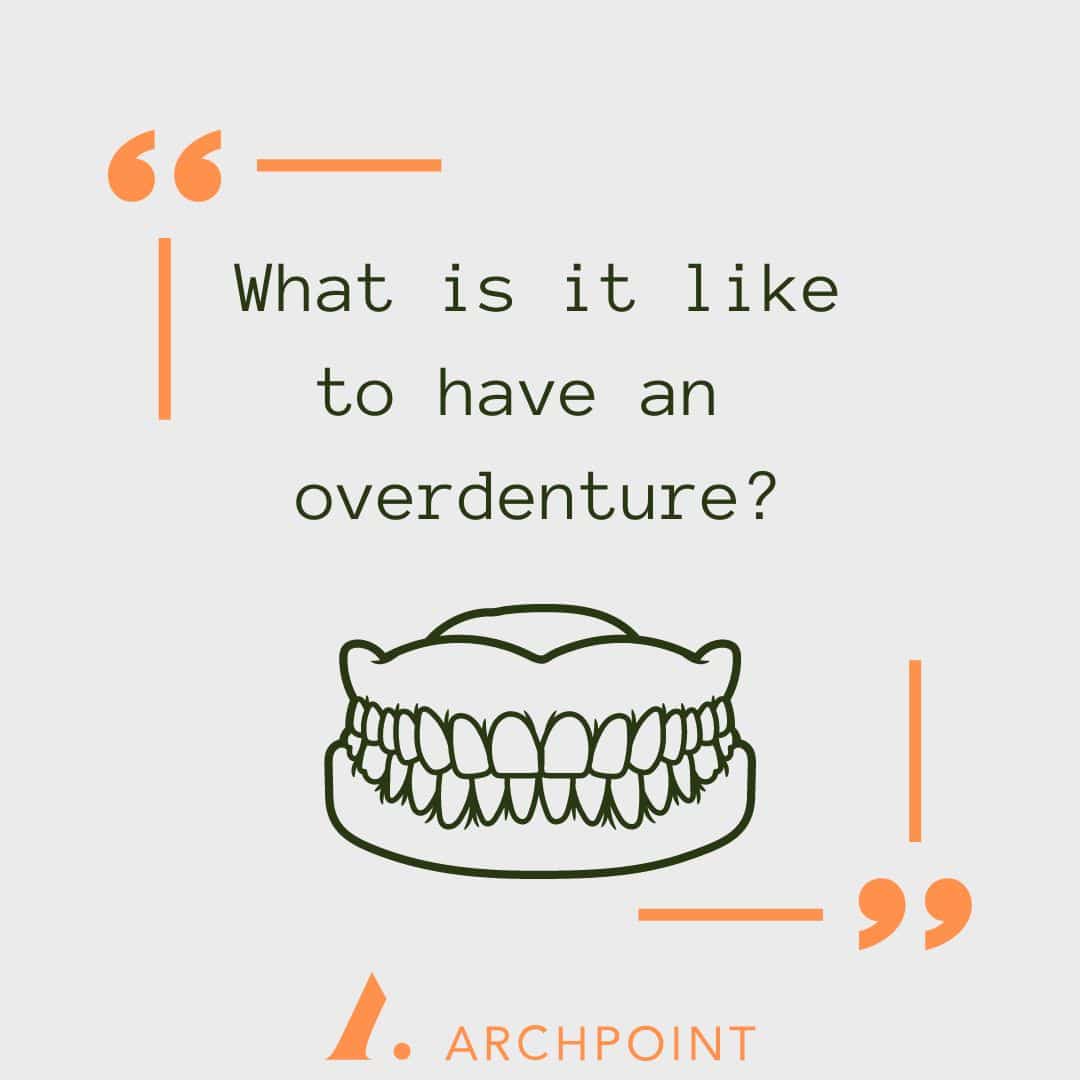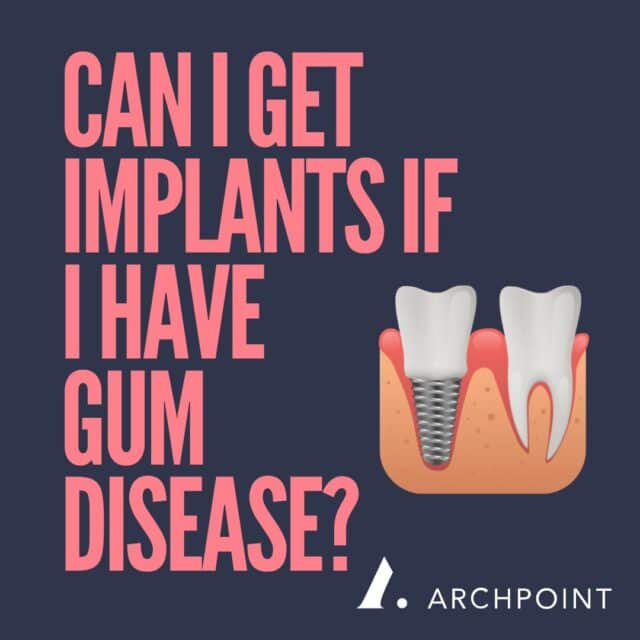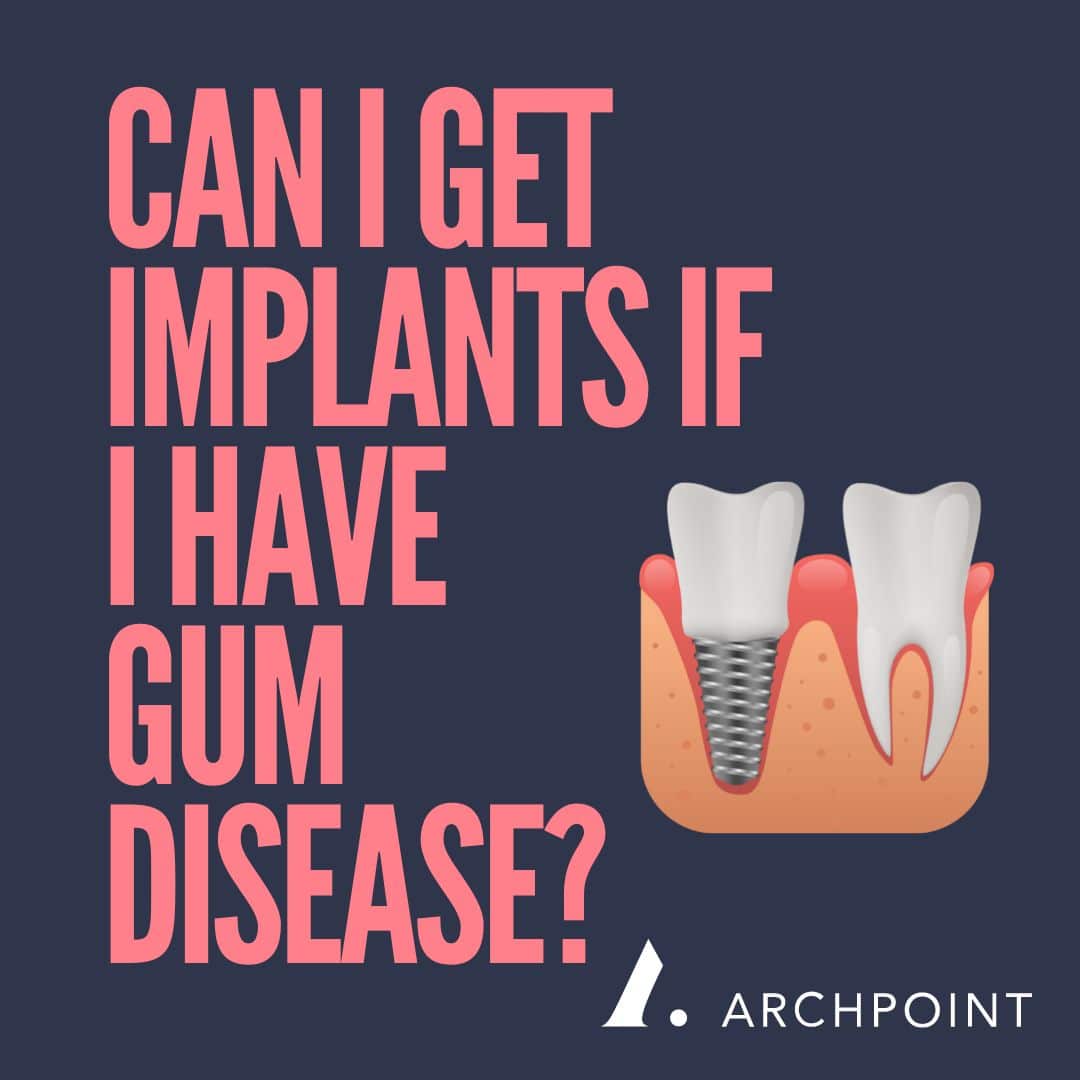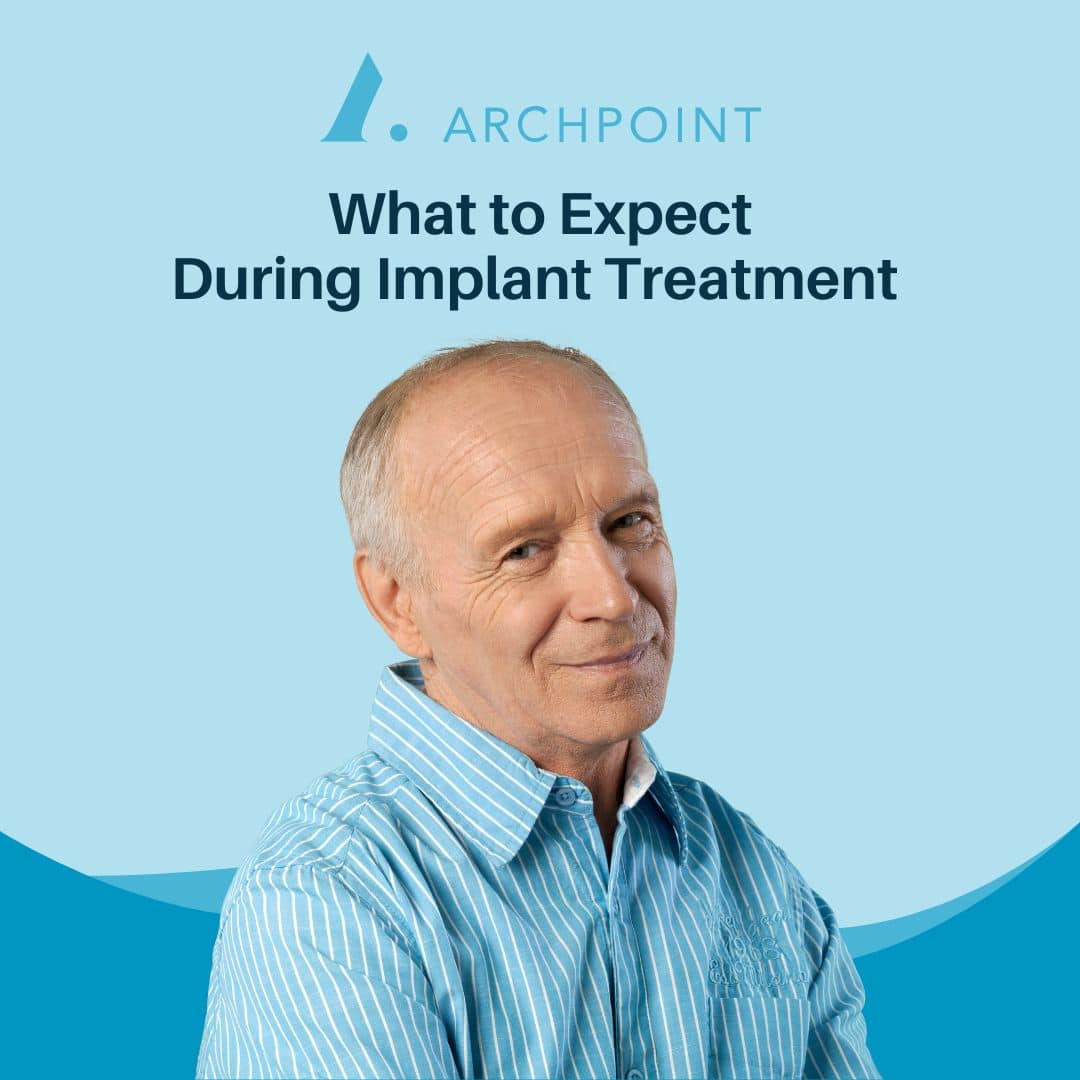
You’ve probably heard that getting dental implants isn’t a one-time, same-day process. Sure, there may be places that advertise teeth in a day, but there’s actually a lot more to dental implant treatment than one appointment with your dentist. In fact, the dental implant process isn’t something that you want to rush; skipping important steps or cutting corners can set your treatment up for failure. You need to know what to expect.
At ARCHPOINT, we want our implant candidates to understand the entire treatment process before they commit to getting dental implants. That’s why we’re clear and upfront about the overall procedure, the steps involved, and the total time commitment required.
Initial Consultation and Imaging
The first step in getting dental implants is an initial consultation with an implant specialist. During this consultation, our implant experts will evaluate your dental health, review your medical history, and discuss your treatment goals and expectations. We’ll also take digital X-rays and/or a 3D CT scan to assess the anatomy and density of your jawbone. If you have any natural teeth that can be restored—or need to be extracted—we’ll also discuss that at this time.
At this point in the implant process, we can determine the best location for your dental implant placement and create a personalized treatment plan.
Treatment Planning: What to Expect
After the initial exam (but at the same appointment,) our treatment coordinators will develop a detailed care plan that outlines the steps of your implant treatment, including the number of implants needed, the location of implant placement, and the type of restoration that will be used to replace your missing teeth.
Treatment plans typically serve as a blueprint for your upcoming smile reconstruction. They list out the number of appointments needed, adjunctive services that are to be performed—such as sedation, bone grafting, or tooth extraction—and a breakdown of all of the associated fees.
Reviewing Costs and Financial Options
Once your treatment plan has been developed, our treatment coordinator will review the costs of the treatment with you. If you have more than one option to consider, you can weigh one against the other to find the best one for your budget. At this time, we’ll also discuss financing options, including payment plans and insurance coverage, to ensure that you can receive the treatment you need at a monthly rate you can afford.
For full-mouth treatments like All-on-4 implants, it’s fairly common to finance all or a portion of the procedure. Our payment plans offer low and 0% interest rates that make it easy for you to start your implant therapy as soon as you’re ready.
Now that you have your consultation completed, a written treatment plan, and a cost breakdown of your proposed care (all of which are usually completed in one visit), you can do one of two things: schedule right away, or take the information home and think about it or talk it over with someone close to you.
Surgical Placement of Your Dental Implants
Once you’re ready to begin the actual process of getting implants, we’ll schedule you to come back for a surgery date. That’s assuming you don’t need any adjunctive services leading up to the procedure, like extractions or sinus lifts. During this visit you’ll know what to expect: our implant specialist will numb the area with local anesthesia and create a small incision in your gums to access your jawbone. They will then create a small hole in the bone and place the implant into that space. Once the implant is in place, the gums over your implant will be closed to allow the surgical site to heal.
Some people choose to have their implant surgery completed with the help of sedation so that they can tune things out.
Osseointegration: What to Expect
This stage of implant treatment is one of the most important. At that point, it’s easy to know what to expect over the next few weeks. After the surgical placement of your dental implants, osseointegration begins. This is a natural process where the bone around your implant fuses with the implant surface, creating a permanent and stable foundation for your new “teeth.”
Depending on your health history, osseointegration usually takes anywhere from 3-6 months. If you rush through this process, it could result in dental implant failure. But don’t worry, we can arrange to fit you with a temporary prosthesis to wear so that you won’t have visibly missing teeth during this phase of treatment.
Presentation of Final, Fixed Prosthesis
Once osseointegration is complete, our implant specialist will create a final, fixed prosthesis, which is the replacement tooth or teeth that will be attached to the implant. This may be a single tooth, a bridge, or a full arch of replacement teeth, depending on your individual needs. More than likely, this part of your treatment will involve a couple of different appointments for impressions, scans, and photographs. We may even be able to have you try a mock-up of the proposed design before the permanent version is made. We’ll also install special abutments by uncovering your implants, attaching small extensions to them, and then taking impressions for your permanent restoration to fit on top of them.
Installation of Your Permanent Implant Teeth
After the final, fixed prosthesis has been created, our implant specialists will remove your interim prosthesis and then install your permanent implant restoration. This is the final, permanent part of the “tooth” you see above the gumlines on top of your dental implants.
Care and Maintenance
Once your implant treatment is complete, it is important to care for them properly to ensure their longevity and success. This includes brushing and flossing regularly, planning regular dental check-ups, and avoiding habits that can damage your implants, such as smoking or chewing on hard objects.
At ARCHPOINT Implant Dentistry, we are dedicated to providing our patients with the highest quality implant treatment from start to finish. Our team of implant specialists has extensive training and experience in advanced implant therapies, and we use the latest techniques and technology to ensure that your treatment is successful and your new smile looks beautiful.
For a personalized treatment approach, plan your consultation at ARCHPOINT in Dallas or Fort Worth today.
